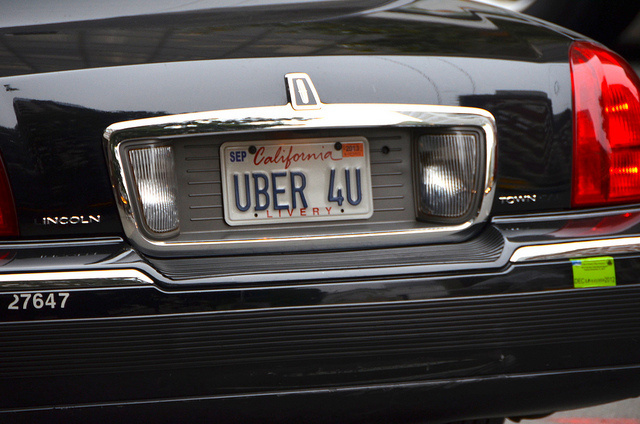California Uber daughter fined $ 7.3 million for hiding information
California regulators filed Raiser-CA, a subsidiary of Uber, with a penalty of $ 7.3 million for failing to report on vehicle accessibility, safety, and proprietary information in 2014. The company has the opportunity to file an appeal or pay a fine within thirty days. Uber will appeal the decision.

Raiser-CA provides UberX services in California. The California Public Utilities Commission did not receive reports from the company about the number of taxi orders made by people with disabilities and the availability of cars capable of carrying out such orders. The second violation of the company was the failure to provide information on the number of trips ordered, the number of failures and the amount of money paid by customers. The third violation is the lack of information about traffic accidents involving UberX drivers.
Companies were given thirty days to pay or appeal a $ 7.3 million fine. Otherwise, the company's operations in California will be suspended.
')
A spokesman for Uber said the fine was "deeply disappointing." The company appeals the decision, because Uber has already submitted significant amounts of data to the Public Services Regulatory Commission - this is the information that the company provides in other states. According to Uber, requests "go beyond the Commission and will not improve public safety."
In recent months, Uber had problems servicing some customers: in September 2014, the company was sued by San Francisco, claiming that UberX drivers violated the rights of disabled people by refusing to carry blind people with animals .

Uber, for various reasons, is being persecuted around the world, often due to the intervention of the initiative employees of official taxis. In May, UberX was banned in South Korea : a new law prohibits the provision of transport services without a license. In the same month, a Milan court ruled to ban UberX activities in Italy. UberPOP services in France were discontinued after drivers started to turn over and burn Uber cars.
Bulgaria’s Commission for the Protection of Competition in July 2015 fined two Uber partner companies for 100,000 euros: Uber services are similar to official taxi services, but companies do not pay taxes, do not receive a license and do not report income regulators, which gives them competitive advantages.
The Federal Antimonopoly Service of Russia does not consider that the Uber, Gett and Yandex.Taxi services violate the law. The deputy head of department, Andrei Tsarikovsky, said that he sympathized with taxi drivers, but Internet services like Uber are very convenient.

Raiser-CA provides UberX services in California. The California Public Utilities Commission did not receive reports from the company about the number of taxi orders made by people with disabilities and the availability of cars capable of carrying out such orders. The second violation of the company was the failure to provide information on the number of trips ordered, the number of failures and the amount of money paid by customers. The third violation is the lack of information about traffic accidents involving UberX drivers.
Companies were given thirty days to pay or appeal a $ 7.3 million fine. Otherwise, the company's operations in California will be suspended.
')
A spokesman for Uber said the fine was "deeply disappointing." The company appeals the decision, because Uber has already submitted significant amounts of data to the Public Services Regulatory Commission - this is the information that the company provides in other states. According to Uber, requests "go beyond the Commission and will not improve public safety."
In recent months, Uber had problems servicing some customers: in September 2014, the company was sued by San Francisco, claiming that UberX drivers violated the rights of disabled people by refusing to carry blind people with animals .

Uber, for various reasons, is being persecuted around the world, often due to the intervention of the initiative employees of official taxis. In May, UberX was banned in South Korea : a new law prohibits the provision of transport services without a license. In the same month, a Milan court ruled to ban UberX activities in Italy. UberPOP services in France were discontinued after drivers started to turn over and burn Uber cars.
Bulgaria’s Commission for the Protection of Competition in July 2015 fined two Uber partner companies for 100,000 euros: Uber services are similar to official taxi services, but companies do not pay taxes, do not receive a license and do not report income regulators, which gives them competitive advantages.
The Federal Antimonopoly Service of Russia does not consider that the Uber, Gett and Yandex.Taxi services violate the law. The deputy head of department, Andrei Tsarikovsky, said that he sympathized with taxi drivers, but Internet services like Uber are very convenient.
Source: https://habr.com/ru/post/292658/
All Articles